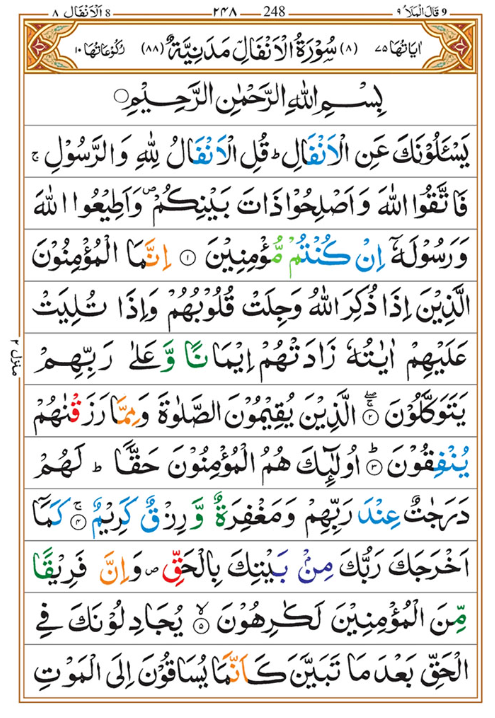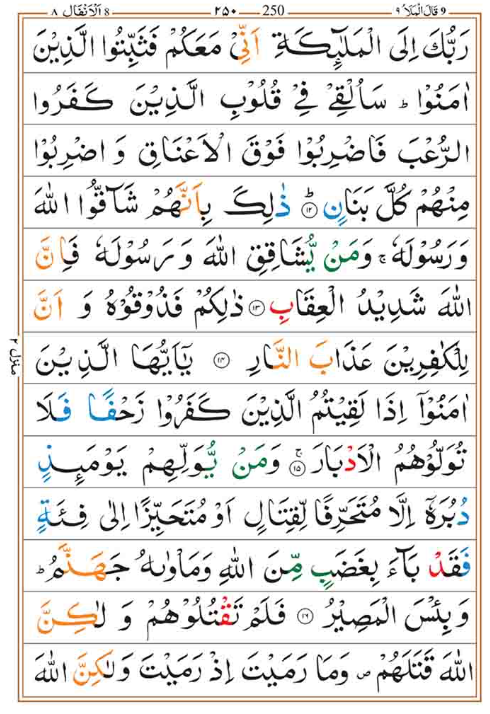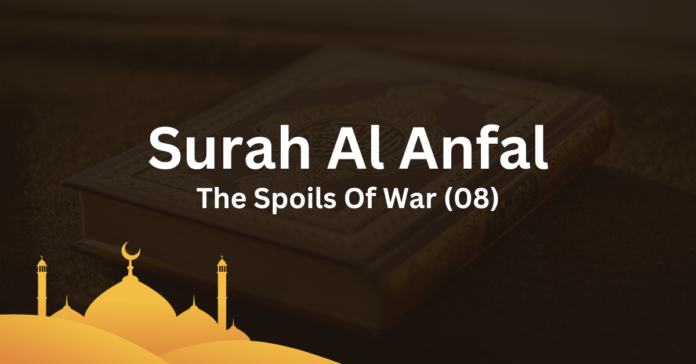Introduction
Surah Anfal, the 8th chapter of the Holy Quran, holds profound significance in the hearts of Muslims worldwide. Its title, “The Spoils of War,” encapsulates the theme of dealing with the aftermath of conflict, both on the physical and spiritual planes. Revealed in Madinah, this surah comprises 75 verses distributed across 10 sections, or rukus, and is located in the ninth and tenth juz’ of the Quran.















Benefits of Surah Anfal
- Guidance in Conflict Resolution: Surah Anfal serves as a timeless guide for Muslims facing conflict, emphasizing the importance of seeking Allah’s assistance in times of turmoil. By recounting the Battle of Badr, where the nascent Muslim community triumphed against seemingly insurmountable odds, it instills hope and resilience in believers confronting adversity.
- Divine Support: One of the core lessons of Surah Anfal is the unequivocal belief in Allah’s divine support. It underscores that victory is not attained through sheer might or strategy alone but is ultimately a manifestation of Allah’s will. This reassurance fosters unwavering faith and reliance on the Almighty, even in the face of daunting challenges.
- Ethical Conduct in Warfare: Within Surah Anfal, Allah outlines clear guidelines for ethical conduct during times of conflict. By delineating principles of justice, mercy, and restraint, it establishes a framework for Muslims to uphold their moral integrity, even amidst the chaos of war. This emphasis on righteousness serves as a beacon of light amidst the darkness of conflict, ensuring that believers remain steadfast in their adherence to divine principles.
- Unity and Brotherhood: Surah Anfal underscores the importance of unity and brotherhood among believers, highlighting the significance of collective strength in the face of adversity. By emphasizing mutual support and cooperation, it fosters a sense of camaraderie within the Muslim community, fortifying its resilience against external threats.
- Spiritual Reflection: Beyond its practical teachings, Surah Anfal invites believers to engage in deep spiritual reflection. Through its vivid narratives and profound insights, it encourages introspection and contemplation, fostering a deeper connection with Allah and a heightened sense of spiritual awareness.
Conclusion
Surah Anfal stands as a timeless testament to the enduring wisdom and guidance of the Holy Quran. From its recounting of historical battles to its timeless moral lessons, it continues to inspire and uplift believers across generations. By emphasizing faith, righteousness, and unity, it offers invaluable guidance for navigating the challenges of life, both in times of conflict and in moments of tranquility. As Muslims recite and reflect upon its verses, they find solace, strength, and guidance in their journey towards spiritual fulfillment and divine closeness.

